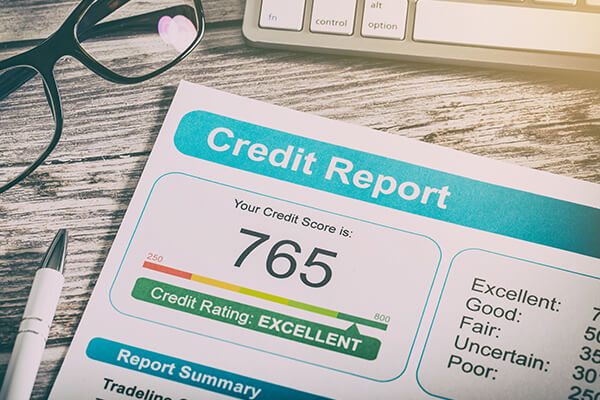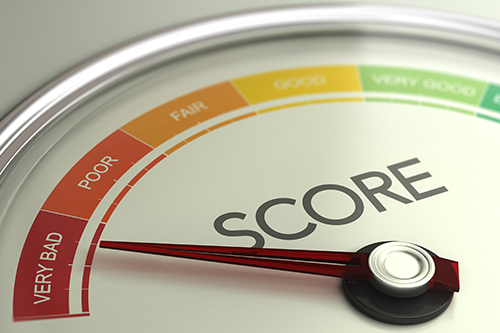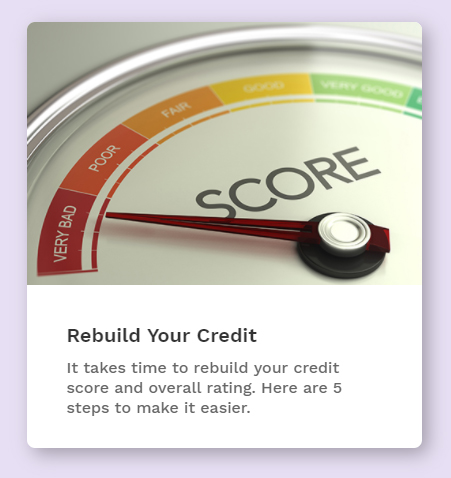7 Things That Are Not On Your Credit Report
By Julie Jaggernath
Your credit report is a snapshot of your financial situation at a single point in time. Your credit history report lists your current credit accounts, how you’re managing your debts, and how often you’re making credit inquiries. But what is not on your credit report?
Here’s a closer look at what is and isn’t on your credit report:
1. Not All Accounts Are Listed on Your Credit Report
In Canada, there are two credit reporting agencies – TransUnion and Equifax. While consumers assume that both credit bureaus report identical information, that’s not the case. Business aren’t required to report their information to these agencies, they do so on a voluntary basis.
Some banks and lenders will report to one reporting agency, some to the other, and many to both.
Because of this mismatch in reporting, you need to request both of your credit reports to get a full idea of all of your accounts being reported. Keep an eye out for errors, too – you could have settled or paid off a debt only to find it’s still registering on your report as an account in arrears.
2. Old Credit Information Stops Being Reported
Thankfully, a bad credit history doesn’t stay on your credit report forever, marring your chances of getting a loan or other credit products. Depending on the province that you live in, old credit information, the good as well as the not so good, will fall off your credit history report after six to seven years.
Some information stays on your credit report for longer than 7 years. A second bankruptcy, for instance, remains on your report for 14 years after you’ve been discharged. Creditors can apply to have a judgment against you be renewed.
What to Do When You Receive a Debt Collection Letter or Call
A consumer proposal will stay on your report for three years after the last payment is made or for 6 years from that date it was filed, whichever comes first. A Debt Management Program comes off your credit report sooner staying on there for two years after you complete the program or for six years from when you start the program, whichever is sooner.
3. Your Credit Score Is Not On Your Credit Bureau Report
Your credit score is your ticket to securing a mortgage, getting a credit card, and being approved for any other loans. It gives lenders and indication, based on how you manage your current outstanding debts, if you’re likely to repay any new credit they approve you for.
Your credit score, however, is not on your credit report; it must be obtained separately from the credit bureau companies.
4. Most of Your Everyday Bills Are Not Reported
While your credit card accounts and lines of credit are pulled into your credit report, your day-to-day bills, such as your rent and utility payments like Internet, water, and electricity aren’t roped in. (Cell phones on contract are an exception; they are reported.)
If you fall behind on payments and these accounts go into default or end up with a collection agency, it’s at this point, however, that they could show up on your credit report.
5. Soft Inquiries Are Only Visible to You
Soft inquiries are triggered when you or a third party look at your credit report for non-lending purposes. This could include when you ask for your free credit report, or when you’re applying for a job or to rent a home.
Soft inquiries don’t impact your credit score and they won’t show up on your credit report to others, although you’ll be able to see them. Hard inquiries, which are applications for credit, will stay on your credit report for three to six years.
Anytime you ask for a loan or new credit product, your credit report will be accessed; that’s a hard inquiry. These inquiries will note the date, the requestors’ name, and their contact information. Your aim is to not have too many hard inquiries within a short period of time – it looks to lenders as though you’re shopping for credit (and could end up in over your head very quickly).
6. Your Interest Rates and Any Penalties Incurred Are Private Information
Your credit report names your accounts, such as credit cards, lines of credit, and instalment payments such as car loans. They include when the account was opened, its status with the lender, the highest amount owing, the currently reported balance, and the number of payment periods past due. It will also state the date of last activity, such as when you made a payment or used the account (e.g. charged on your credit card).
It doesn’t, however, list any caveats tied to these accounts, such as steep interest rates and penalties incurred because of missed payments. These are details that are shared between you and your creditor.
7. Personal Information – Only What You Provide is Reported
Your credit report will list your full name, address, and date of birth – it’s vital that you check that this information is correct, especially if you have a common name. Sometimes your account details could be mixed up with another person with similar identifying points. In worst case scenarios, you could be a victim of identity theft.
Your credit report could contain employment information as well, which you provide when you apply for credit and are asked for your employment and salary details.
Your credit report won’t, however, list your gender, race, religion, citizenship, political affiliation, medical history, or criminal records (unless you were convicted of a crime related to your finances, e.g. bank fraud). It could list marital status if you applied for joint credit with your your spouse.
Personal information reported on your credit report will be information you provided to a lender at some point. The information can become outdated very quickly, e.g. if you move, get divorced, or switch employers.
When It Comes to Knowing What Is and What Is Not on Your Own Credit Report
If you’re curious and want to know what is and what is not on your own credit report, get a free copy of your credit report from both Equifax and TransUnion. Take a look to ensure that all of the information is accurate. When you get your credit report, it will come with special instructions about how to correct errors, however, they must be true mistakes. Information that is not favourable, but is still accurate, will unfortunately have to stay. No one can have that removed, so avoid tempting credit repair offers from companies that tell you otherwise.
If you have question about how to deal with the debts listed on your credit report, contact us for help. We’d be happy to take a look at your situation and provide you with information and guidance about how to resolve your situation.
Last Updated on October 1, 2024







Your blog post had me hooked from the very beginning!
Fascinating read! It’s quite eye-opening to learn about the various elements that don’t appear on a credit report, especially considering how critical these reports are in our financial lives. The fact that not all accounts are listed and that there’s a discrepancy between what’s reported to TransUnion and Equifax in Canada is particularly noteworthy. It underscores the importance of checking both reports regularly to ensure accuracy. This article is a great reminder that our credit reports are not as all-encompassing as we might think and that staying informed is key to managing our financial health.
How do the credit report companies find out your assets?
Hi Carol, Credit report companies don’t know anything about your assets. That information is not reported to them by your creditors. Your creditors will only report the debt that you owe along with your payment history. You can contact either of the credit reporting agencies, Equifax or TransUnion, and request a free copy of your credit report. On it you will only see debt and payment information – no assets. When a bank or creditor lends you money, they ask what assets you have and record what you tell them. If they needed to, the bank or creditor could then take steps to verify any significant assets that you claim to have. They will typically only do this, though, if the asset is going to be used as collateral for a loan.
THANKS!